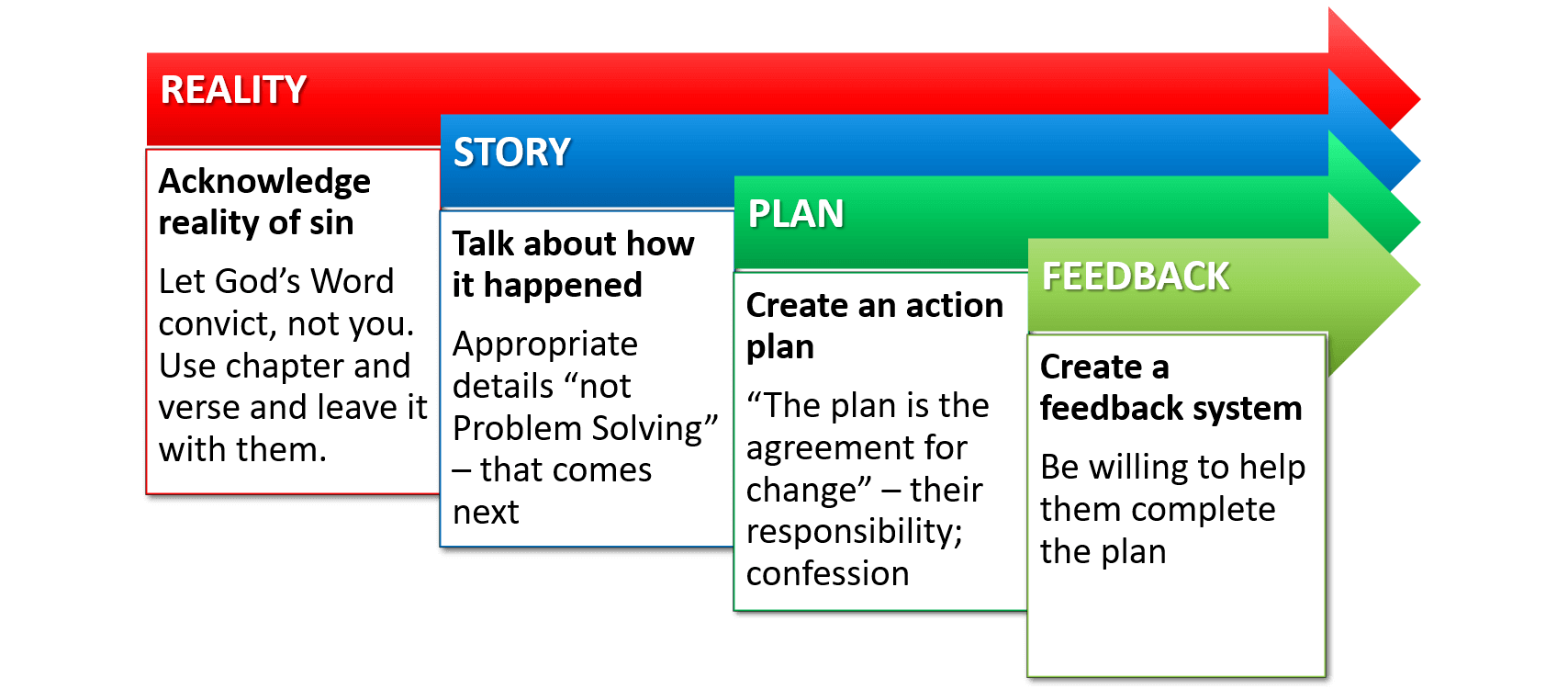Difficult conversations work best using the structure in God's Word. The Word can change a person because you are following God's wisdom. If you prefer video instead of reading, you can watch and listen here - "Catalytic Conversations."
What is a Catalyst?
A substance, usually used in small amounts relative to the reactants, that modifies and increases the rate of a reaction without being consumed in the process.
Note 3 essential parts of the definition.
- Small amounts
- Increases rate of reaction (or change)
- Not consumed in the process
Jesus is the ultimate catalyst. He doesn’t overpower you, even though He could. He speaks with a “still small voice” to get your attention. And He speeds up change and never is changed.
How can you be more like Jesus when you decide to have a difficult conversation with someone? Here is God’s "catalytic" approach.
Brethren, if a man is overtaken in any trespass, you who are spiritual restore such a one in a spirit of gentleness, considering yourself lest you also be tempted. Bear one another’s burdens, and so fulfill the law of Christ. For if anyone thinks himself to be something, when he is nothing, he deceives himself. But let each one examine his own work, and then he will have rejoicing in himself alone, and not in another. For each one shall bear his own load. - Galatians 6:1-5

Trespass, not Opinion
“…a man is overtaken in any trespass…” – A significant danger in talking to someone about a “trespass” is the difference between your preferences and God’s Word.
A trespass is crossing the boundary of what God has stated is right or wrong, not what you believe is incorrect. Before you go to anyone, verify that the issue you will discuss is from God’s Word. Have “chapter and verse” available for them. Let that passage in God’s Word speak to them more than you do.
Be Spirit-Led
"You who are spiritual" and "considering yourself" - Paul just finished talking about the fruit of the Spirit, so it is evident that "spiritual" is about walking in the Spirit as opposed to the flesh.
And, during these difficult conversations, it's easy for the flesh to take you in the wrong direction - "lest you be tempted". You can easily be sidetracked by what the person says to you or your emotions. Difficult conversations only work right when you follow the Holy Spirit's guidance.
Restore
"Restore" is the verb, the key action of "...you who are spiritual..." An implication is that without the Holy Spirit leading, restoration will not happen. Restore is about mending. God wants you to walk in the Spirit with a heart that desires to mend and restore relationships, not leave them broken. He wants you to say “yes” to the other person, even when they say “no.”
It is so easy not to have a difficult conversation when needed. The thought of the emotional conflict that may happen becomes a big flashing stop sign - stop, don't do it!
But God is in the business of restoration and redemption. He wants you to be a channel of His grace, mercy, and truth. You are not doing this alone, His Spirit guides you. So, let's see how God uses you in this conversation.
Be Gentle
A "spirit of gentleness" is only possible with humility, which is the context of this passage. Look at Galatians 5:26, the verse immediately preceding verse 1 of chapter 6 says, "Let us not become conceited, provoking one another, envying one another."
Gentleness reduces barriers, force raises them. Difficult conversations are not about you using truth as a sledgehammer. It is about you using truth in love, following the Holy Spirit to see how God might use you to restore this person.
Fulfill the Law of Christ
Not only gentle but do this in love. "Bear one another's burdens, and so fulfill the law of Christ." Love - pursuing the best for others; patiently, kindly, sacrificially, and unconditionally - is the law of Christ. You will not bear their burdens unless you want what is best for them.
Love requires a decision before you enter the conversation, while you are having the conversation, and after you finish. It is what will make the difference, not whether you are persuasive.
Rejoice
If the conversation helps them and they change, it’s not because of you. Look at this part of the passage. “For if anyone thinks himself to be something, when he is nothing, he deceives himself."
This is a direct reference to times we take credit instead of giving credit to God for any change that occurred. It also clearly references the obstacle to love - thinking about "ME" more than others.
And what comes next is a critical, but overlooked part of the passage. If I am correct about what follows, it will help you have the difficult conversations.
And, if they didn’t change, then it is time for “rejoicing in himself alone." That is not a "ME" flashing moment. You did what was right, so you praise God that He is at work in you and being thankful for the situation (1 Thes. 5:18).
This is about FREEDOM because this rejoicing is "not in another." You are rejoicing that you did what God wanted, not whether they changed. "For each one shall bear his own load" is about you being accountable for your behavior and them for theirs.
Persevere
Finally, look ahead at Galatians 6:9. Difficult conversations typically start the process toward a solution. That means perseverance is needed because most things aren’t solved overnight. Don't tire of doing what is right, "for in due season we shall reap if we do not lose heart."
Structure
You can use the “Moment of Truth” structure which has 4 steps. The power of God’s Word is the most important, so step one is critical. If more conversation is needed, you can use steps 2 through 4.

Videos you may like
Podcasts you may like
